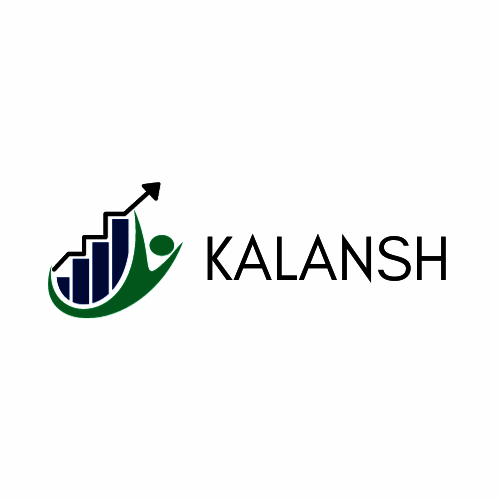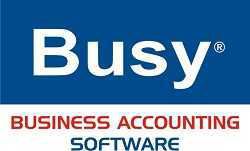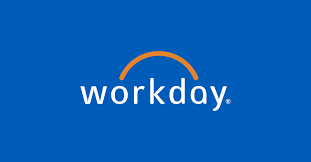What Is Finance Management Software?
A specialist application called finance management software, sometimes referred to as financial management software or just financial software, assists people and organizations in managing their financial records and activities. This kind of software offers a thorough and centralized platform for budgeting, forecasting, tracking and monitoring financial transactions, and financial data analysis.
The capacity of finance management software to automate manual operations is one of its most important aspects, since it reduces the time and effort needed for financial management. Additionally, this program encourages accuracy and guarantees that all financial data is kept current and free of errors. Apart from these essential features, finance management software frequently comes with a number of modules and tools for handling many financial facets, including budgeting, cash flow management, accounting, invoicing, and spending monitoring. Features like financial reporting, investment management, and tax preparation may also be included in certain sophisticated applications.
Additionally, real-time insights and customisable dashboards are provided by finance management software, giving customers a comprehensive picture of their financial situation and enabling them to make data-driven decisions. It is the perfect answer for companies with several departments or teams since it also makes it easier for team members to collaborate and communicate with one another.
It is essential to take into account both your unique requirements and the software's features, including compatibility with your devices and connection with other tools, when searching for finance management software. To guarantee the security of your financial information, it is also crucial to look for security measures and data protection safeguards.
In the end, finance management software may assist both individuals and companies in streamlining their financial procedures, increasing productivity, and formulating strategic choices based on timely and reliable financial data. Financial management may be made easier with the correct software, freeing you up to concentrate on other important facets of your life, whether it be personal or professional.
What Are The Recent Trends In Finance Management Software?
Financial management software has rapidly evolved in recent years, with new developments and trends appearing to satisfy the shifting demands of firms. In order to make an informed choice when purchasing finance management software, it is critical for buyers to comprehend these trends.
1. Cloud-Based Solutions: The shift to cloud-based solutions is one of the largest developments in finance management software. Because these software systems are hosted online, there is no longer a requirement for physical hardware, and financial data is easily accessible from any device.
2. Mobile Accessibility: Finance management software is now providing mobile accessibility due to the growth of remote work and the growing usage of smartphones and tablets in the workplace. This makes it more convenient and effective for users to access their financial data when they're on the go.
3. Automation: In finance management software, automation has emerged as a crucial component that helps companies cut down on errors and save time. Automation capabilities can improve accuracy and speed financial processes by automating repetitive tasks like data entry and creating reports and invoices.
4. Artificial Intelligence And Machine Learning: These two fields are having a big influence on software for financial management. Large volumes of financial data may be analyzed by these technologies, which can then spot trends and offer insights to assist companies make wiser financial choices.
5. Integrations And APIs: Many software suppliers are providing integrations and APIs that enable their software to connect with other corporate technologies in order to streamline the finance management process. By doing away with the necessity for manual data entry, this increases data efficiency and accuracy.
6. Put Security First: With the ongoing increase in cyberthreats, security has emerged as a major concern for providers of finance management software. Businesses may use their software with peace of mind because they are constantly updating it to protect critical financial data.
Benefits Of Using Finance Management Software
For companies of all sizes, from start-ups to multinational conglomerates, finance management software is a vital tool. It is intended to simplify and expedite all financial procedures, including accounting, forecasting, budgeting, and invoicing. Businesses are finding that investing in finance management software is essential due to the growing complexity of financial duties and the demand for precise and fast financial data.
These are some of the main advantages of utilizing software for financial management.
1. Enhanced Accuracy And Efficiency: By automating several financial operations, finance management software saves time and minimizes human mistake. It enables real-time data processing and does away with the necessity for human error-prone manual data entering. As a result, financial management becomes more accurate and efficient, guaranteeing that your financial records are constantly current and free of errors.
2. Centralized Financial Data: All of your financial data is kept in one place by finance management software. It makes tracking and analyzing your finances easier by enabling you to view and access all of your financial data in one location. You can quickly create financial reports and learn important information about the financial health of your business using a centralized system.
3. Improved Cash Flow Management: Finance management software can assist you in efficiently managing cash flow, which is a crucial component of any firm. Real-time tracking of income and expenses allows you to see your cash flow clearly, spot possible issues, and take the appropriate precautions to stay clear of them. This can guarantee your company's financial stability and avoid cash flow problems.
4. Better Forecasting And Budgeting: Finance management software includes forecasting and budgeting features that let you make precise forecasts and budgets using previous data. You can use these tools to prepare for future spending, foresee any financial difficulties, and make well-informed business decisions that will help you reach your financial objectives.
5. Secure Financial Data: The security of a company's financial data is one of its top concerns. Advanced encryption, user authentication, and other security measures are used by finance management software to guarantee the protection of all your financial data. This lowers the possibility of financial fraud and shields your financial information from unwanted access.
6. Simple Invoicing And Payment Processing: By automating the invoicing process, finance management software makes it simple and quick to send clients invoices and monitor payments. Additionally, it permits payment gateway integration, which facilitates online payments for clients. This lowers the possibility of lost or delayed payments and expedites the payment procedure.
Important Factors To Consider While Purchasing Finance Management Software?
For any organization or individual, having a dependable and effective system is essential when it comes to financial management. This is the role of finance management software, which offers a complete solution for budgeting, tracking spending, managing financial data, and more. However, selecting the best option for your unique needs might be difficult due to the abundance of possibilities on the market.
Here are some crucial things to think about when buying finance management software to help you make an informed choice.
1. Features And Functionality: The software's features and functionality should be taken into account first. List the essential functions you need, including financial reporting, tax management, expense tracking, invoicing, and budgeting. In addition to looking for software that has these features, make sure it is easy to use and adaptable to your unique requirements.
2. Compatibility: Verify that the finance management program you select works with the other programs you use and your existing system. You don't want to spend money on new software just to discover that it doesn't work with your operating system or accounting program.
3. Security: Because financial information is so sensitive, it must always be kept safe. As a result, pick software with robust security features like data encryption and frequent backups. To further guarantee that your data is safe, see if the program complies with industry standards like GDPR.
4. User-Friendliness: Any software's seamless operation depends on its user-friendly interface. Choose financial management software that is simple to use and doesn't need a lot of training. In the long term, this will save you money and time.
5. Customer Help: Having dependable customer help from the software vendor is crucial in the event of technical problems or inquiries. Choose software that provides 24/7 assistance, ideally via a variety of channels including live chat, email, and phone.
6. Scalability: Your company's financial requirements will expand along with it. As a result, pick financial management software that grows with your company. This will spare you the trouble of later having to switch to a new piece of software.
7. Reputation And Reviews: To gain a sense of the software's reputation, conduct research and read user reviews. Choose software with a solid track record and satisfied customers.
What Are The Key Features To Look For In Finance Management Software?
For companies of all sizes to successfully manage their finances and reach their financial objectives, finance management software is an essential tool. However, choosing the best software might be overwhelming for consumers due to the abundance of options accessible in the market. We have put together a list of essential characteristics to consider in finance management software to assist you in making an informed choice.
1. Budgeting And Forecasting: Strong budgeting and forecasting features should be included in any successful finance management program. This will assist you in forecasting future financial performance, creating and monitoring budgets, and making data-driven decisions.
2. Accounting Capabilities: The software ought to provide all the necessary accounting capabilities, including financial reporting, bank reconciliation, general ledger, and accounts payable and receivable. You will be able to handle your daily accounting responsibilities with ease thanks to this.
3. Customization: Since every company has different financial needs, the software should be adaptable to your particular needs. Seek software that enables you to customize workflows, create custom fields, and alter reports to fit your business procedures.
4. Integration: Selecting a finance management program that interfaces with other crucial tools, such payroll, HR, and CRM software, is crucial. This will remove the need for manual data entry and guarantee smooth data flow.
5. Security: Sensitive financial information needs to be safeguarded at all costs. To protect your data from online risks, the program should have strong security features like multi-factor authentication, SSL certification, and data encryption.
6. User-Friendly Interface: The software's uptake and efficient operation depend heavily on its user-friendly interface. Choose software with a clear, user-friendly interface that allows for dashboard customization and effortless navigation.
7. Scalability: Your company's financial management requirements will change as it expands. Select software that can grow with your company and handle expansion in the future without requiring costly migrations or upgrades.
8. Mobile Compatibility: Having mobile access to financial data is essential in the fast-paced commercial world of today. Choose software that works with mobile devices so you may access information and do tasks at any time and from any location.
9. Customer Support: Effective customer service can be invaluable in the event of any technological problems or challenges. Choose software that provides round-the-clock customer service across a variety of channels, including live chat, email, and phone.
10. Cost-Effectiveness: Finally, take into account the software's total cost of ownership, which includes setup, training, and continuing maintenance. Select software that suits your budget and has a solid feature-to-cost ratio.
Why Do Businesses Need Finance Management Software?
A key component of operating a successful firm is financial management, which includes overseeing a number of responsibilities such financial reporting, forecasting, and budgeting. But doing these things by hand can be difficult and time-consuming, especially as your company expands. Software for financial management can help with this. A digital application called finance management software was created to assist companies in better and more efficient financial administration.
It simplifies and automates procedures, increasing their speed, accuracy, and resistance to human mistake. This can give companies of all sizes a competitive edge in the fast-paced commercial world of today. Gaining greater control and visibility over their finances is one of the primary reasons firms want finance management software.
Businesses can use this software to track spending, estimate revenue more precisely, and keep an eye on their cash flow in real time. This makes it possible for entrepreneurs to make well-informed choices, spot possible financial problems, and take proactive measures to address them. Businesses can also save time and money by using finance management software.
Businesses can lower the risk of errors by automating processes like bill payment and invoicing, which do not require human data entry. Additionally, this increases efficiency and productivity by giving workers more time to concentrate on other crucial activities. Advanced capabilities like financial analysis and reporting are also available in finance management software, and they can offer important insights into the financial health of a company.
Businesses may use this data to analyze performance, pinpoint areas for improvement, and make data-driven decisions that will help them expand and strengthen their financial position. Data security is a key factor in why companies in the modern digital era require finance management software. Data breaches are more likely to occur with manual financial management systems, which can harm a company's finances and reputation.
To protect sensitive financial data, finance management software provides strong security features including encryption and data backups. All things considered, firms can gain from finance management software in a number of ways, such as better financial control, time and resource savings, insightful information, and increased data security. Businesses may stay ahead of the competition, encourage growth, and streamline their financial operations with the help of the appropriate finance management software.
How Much Time Is Required To Implement Finance Management Software?
The intricacy of your financial procedures, the size of your company, and the features and customization possibilities of the software you select can all affect how long it takes to adopt finance management software. On average, though, it may take a few weeks to several months. In order to select software that fits your organization's unique financial demands and objectives, you must first go through a planning and preparation phase.
While you investigate and weigh your alternatives, this process may take many weeks. Setting up the program and transferring your financial data into it are the next steps in the implementation process. Because precise data mapping and configuration are necessary to guarantee correctness, this can be a time-consuming procedure. This step could take longer if you're moving from manual or antiquated software because you might need to arrange and clean up your data before importing it.
There will be a testing and training phase following the first setup. This is essential to make sure the program is operating properly and that everyone on your team is aware of its features. A few weeks to a month may pass during this phase, depending on how complicated the software is. It is important to remember that stronger software does not always translate into longer implementation times. In actuality, your staff can quickly embrace and employ certain user-friendly and intuitive solutions.
What Is The Level Of Customization Available In Finance Management Software?
Customization is crucial for finance management software in order to satisfy each company's particular requirements. Although each software has a different degree of customisation, the following are crucial factors to take into account when assessing this feature of a finance management program:
1. Customization Of The User Interface: A decent finance management program should let users alter the user interface to suit their tastes. This include the design, hues, typefaces, and additional visual components. A more individualized and convenient experience is guaranteed with this degree of personalization.
2. Customization Of Reports: The program should include choices for customizing financial reports, which are essential for decision-making. This involves creating custom templates, altering headers and footers, and adding or removing particular data elements.
3. Customization Of The Chart Of Accounts: All of the accounts utilized in the financial records are listed in the chart of accounts. While some software has a pre-set chart that cannot be changed, others allow for complete customization. The degree of customisation available in this function is crucial, particularly if your business has distinct account classes.
4. Automated Workflows: A competent finance management program should enable the design of automated workflows for more efficient financial procedures. This entails establishing email notifications depending on certain triggers, planned tasks, and approval procedures.
5. API Customization And Integration: State-of-the-art finance management software enables API customization and integration with other systems. For a more smooth experience, this degree of customization makes it possible for the program to interface with other company tools like inventory management systems, ERP, and CRM.
Which Industries Can Benefit The Most From Finance Management Software?
A vital tool for companies of all sizes and sectors is finance management software. By automating and streamlining financial tasks, it helps businesses become more accurate, productive, and efficient. Finance management software, however, can be more advantageous for some businesses than for others. Which industries stand to gain the most from this software will be covered in this guide.
1. The Financial Services And Banking Sector: The banking and financial services sector is prone to human mistake because of the volume of transactions it handles on a daily basis. By automating the forecasting, budgeting, and financial reporting processes, finance management software lowers the possibility of mistakes and empowers financial institutions to make data-driven choices. Additionally, it helps manage regulatory standards and compliance, which are essential in this highly regulated industry.
2. The Manufacturing Sector: Supply chain management, cost control, and inventory management are just a few of the many financial procedures that manufacturing companies must deal with. These procedures are streamlined with the aid of finance management software, which also gives manufacturers up-to-date financial performance information. They can lower expenses, increase overall efficiency, and make well-informed decisions as a result.
3. The Retail Sector: Businesses must keep a careful eye on their finances to stay ahead in the fiercely competitive retail sector. Retailers can monitor their inventory, sales, and expenses in real time with finance management software. This enables them to spot possible problems and take remedial measures to increase their profitability. Furthermore, by integrating with point-of-sale systems, this software facilitates the management of inventory data and transactions.
4. The Medical Field: Managing insurance claims and reimbursements is one of the particular financial difficulties faced by healthcare institutions. By automating these procedures and guaranteeing on-time payments, finance management software helps lower the possibility of revenue leakage. In order to help healthcare providers attain financial stability, it also helps them manage forecasting and budgeting.
5. Nonprofit Establishments: To make sure they are fulfilling their missions and providing excellent services to their constituents, nonprofit organizations must carefully manage their resources. By giving them insight into their finances, donors, and grants, finance management software enables them to make effective use of their resources. It is a vital tool for non-profits since it also aids in compliance reporting, expense tracking, and contribution management.
Conclusion
To sum up, your company can gain a lot from investing in finance management software since it will streamline financial procedures, boost productivity, and offer insightful information for decision-making. To select the best software for your unique needs, it's critical to evaluate your budget, desired features, and business goals before making a purchase.
Before choosing, take into account aspects like security features, customer support, ease of use, and compatibility with current systems. You can take charge of your finances and propel your company to success with the correct finance management software.
We hope that this buyer's guide has given you the knowledge you need to decide which finance management software is best for your company's requirements. We appreciate you taking a look at our suggestions, and we hope your financial management endeavors are fruitful.






















